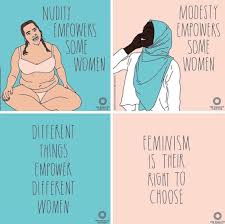The Power of Community Organizing
Community organizing is a powerful force that brings people together to create positive change in their neighborhoods, cities, and beyond. It is a grassroots approach to addressing social issues and advocating for meaningful solutions.
At the heart of community organizing is the belief that when individuals come together as a collective force, they can influence decision-making processes, hold institutions accountable, and drive sustainable progress. By building strong relationships, fostering collaboration, and mobilizing resources, community organizers empower communities to shape their own futures.
Key Principles of Community Organizing:
- Empowerment: Community organizing empowers individuals to take action on issues that matter to them. It gives people a voice and the tools they need to create change.
- Inclusivity: Effective community organizing embraces diversity and ensures that all voices are heard and valued. It strives to create an inclusive environment where everyone feels welcome.
- Collaboration: Collaboration is essential in community organizing. By working together with other community members, organizations, and stakeholders, organizers can leverage collective strengths and resources for greater impact.
- Sustainability: Community organizing focuses on creating long-lasting solutions to systemic issues. By engaging community members in decision-making processes and building capacity within the community, organizers aim to achieve sustainable change.
- Social Justice: Community organizing is often driven by a commitment to social justice and equity. Organizers advocate for fair treatment, equal opportunities, and the rights of marginalized groups within society.
Through grassroots campaigns, advocacy efforts, public awareness initiatives, and more, community organizers play a vital role in driving social change and building stronger communities. By mobilizing individuals around shared goals and values, community organizing has the potential to create lasting impact at local, national, and global levels.
If you are passionate about making a difference in your community or addressing pressing social issues, consider getting involved in community organizing efforts. Together, we can harness the power of collective action to create a more just and equitable world for all.
7 Essential Tips for Effective Community Organizing
- Build relationships with community members
- Identify common goals and issues within the community
- Create opportunities for open communication and collaboration
- Empower and involve diverse voices in decision-making processes
- Organize events and activities to engage the community
- Advocate for positive change through collective action
- Celebrate successes and milestones to maintain momentum
Build relationships with community members
Building relationships with community members is a fundamental aspect of effective community organizing. By establishing trust, understanding needs, and fostering connections, organizers can create a strong foundation for collaboration and collective action. Building relationships allows organizers to engage with diverse perspectives, build solidarity, and mobilize support for shared goals. Strong relationships not only enhance the impact of community organizing efforts but also contribute to building a sense of belonging and empowerment within the community.
Identify common goals and issues within the community
Identifying common goals and issues within the community is a crucial step in effective community organizing. By pinpointing shared objectives and concerns among community members, organizers can rally support, foster unity, and drive collective action towards meaningful change. This process not only helps in building solidarity but also ensures that efforts are focused on addressing the most pressing needs of the community as a whole. When individuals come together around common goals, they become a powerful force for positive transformation, working collaboratively to create a stronger and more resilient community.
Create opportunities for open communication and collaboration
Creating opportunities for open communication and collaboration is essential in effective community organizing. By fostering a culture of transparency and inclusivity, organizers can ensure that all voices are heard and valued. Open communication allows for the sharing of ideas, concerns, and feedback, enabling community members to work together towards common goals. Collaboration brings people together, leveraging their diverse skills and perspectives to develop innovative solutions to complex issues. When individuals feel empowered to communicate openly and collaborate with one another, they can build stronger relationships, trust, and solidarity within the community, leading to more impactful and sustainable change.
Empower and involve diverse voices in decision-making processes
Empowering and involving diverse voices in decision-making processes is a fundamental aspect of effective community organizing. By ensuring that individuals from different backgrounds, experiences, and perspectives have a seat at the table, organizers can foster inclusivity, equity, and innovation. Embracing diversity not only enriches the quality of decisions made but also strengthens community cohesion and resilience. When a wide range of voices is heard and valued, solutions are more comprehensive, sustainable, and reflective of the needs of all community members. Empowering diverse voices in decision-making processes is key to creating a more inclusive and representative society where everyone has the opportunity to contribute meaningfully.
Organize events and activities to engage the community
Organizing events and activities is a key strategy in community organizing to foster engagement and build connections within the community. By hosting gatherings, workshops, fundraisers, or other interactive initiatives, organizers can create opportunities for community members to come together, share ideas, and collaborate on common goals. These events not only help raise awareness about important issues but also provide a platform for individuals to voice their concerns, contribute their skills, and take collective action towards positive change. Through meaningful interactions and shared experiences, community events play a vital role in strengthening relationships, building solidarity, and mobilizing communities for impactful social impact.
Advocate for positive change through collective action
Advocating for positive change through collective action is a cornerstone of effective community organizing. By uniting individuals around a shared vision and mobilizing resources towards common goals, communities can amplify their impact and drive meaningful progress. Through collaborative efforts, advocates can address systemic issues, promote social justice, and create lasting change that benefits the entire community. Collective action not only empowers individuals to make their voices heard but also fosters a sense of unity and solidarity that strengthens the fabric of society. By advocating together for positive change, communities can build a brighter future for generations to come.
Celebrate successes and milestones to maintain momentum
Recognizing and celebrating successes and milestones is a crucial aspect of community organizing to sustain momentum and motivation. By acknowledging achievements, whether big or small, organizers can boost morale, inspire continued engagement, and reinforce the sense of progress within the community. Celebrating successes not only highlights the impact of collective efforts but also fosters a sense of unity and camaraderie among participants. This positive reinforcement can help maintain momentum, drive ongoing participation, and ultimately lead to sustained success in achieving shared goals within the community.




